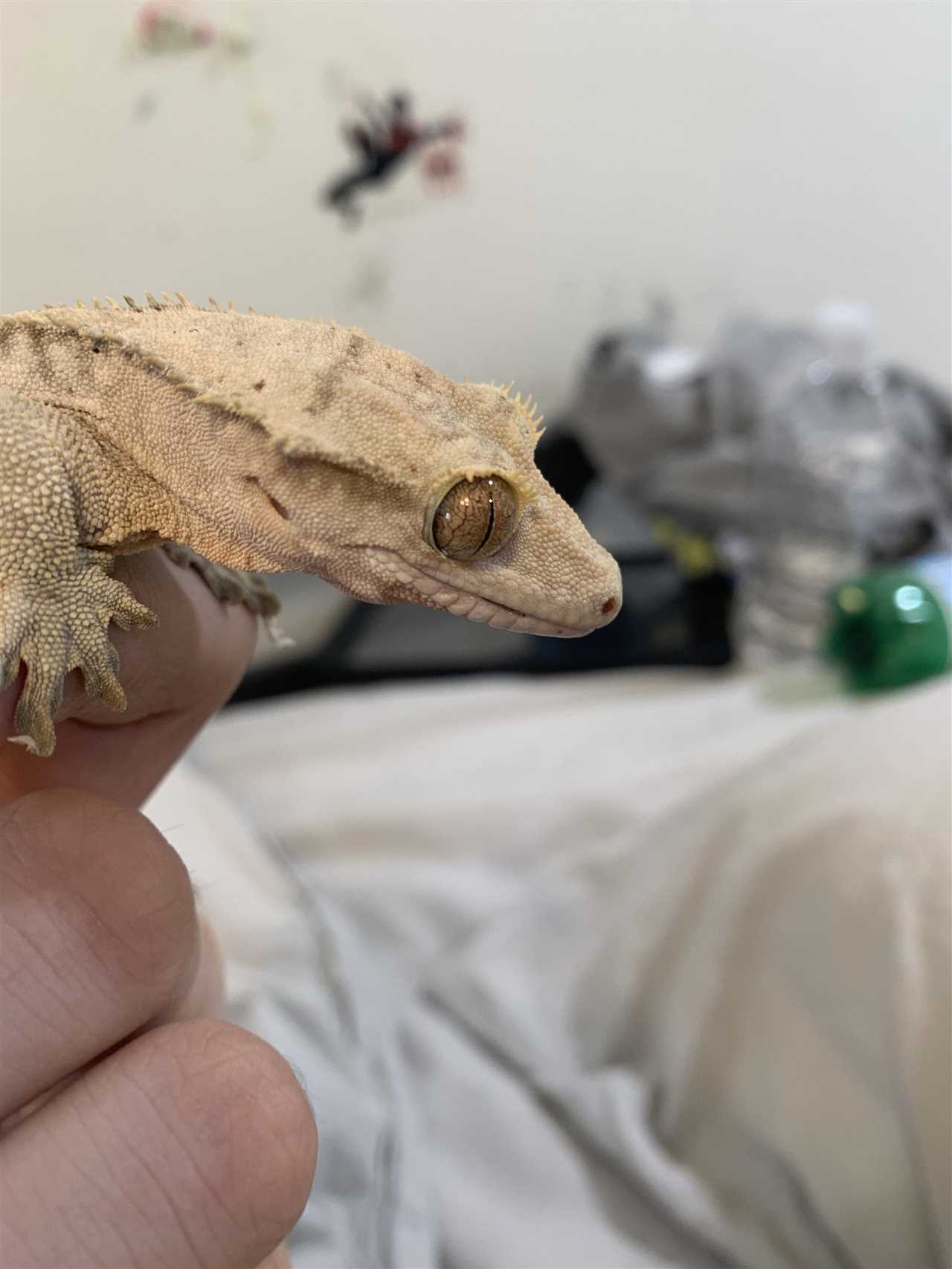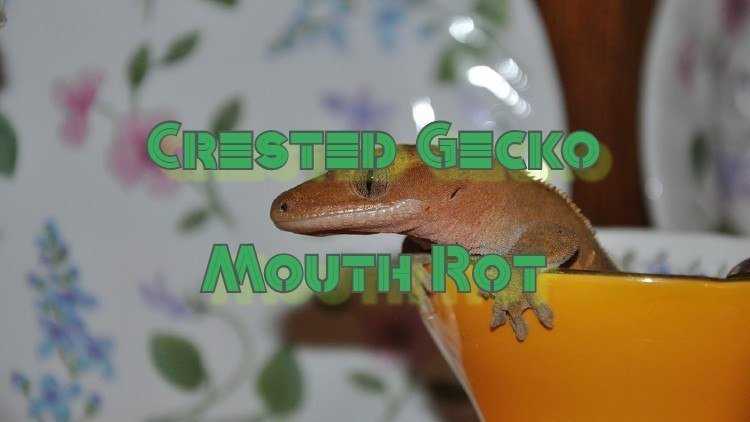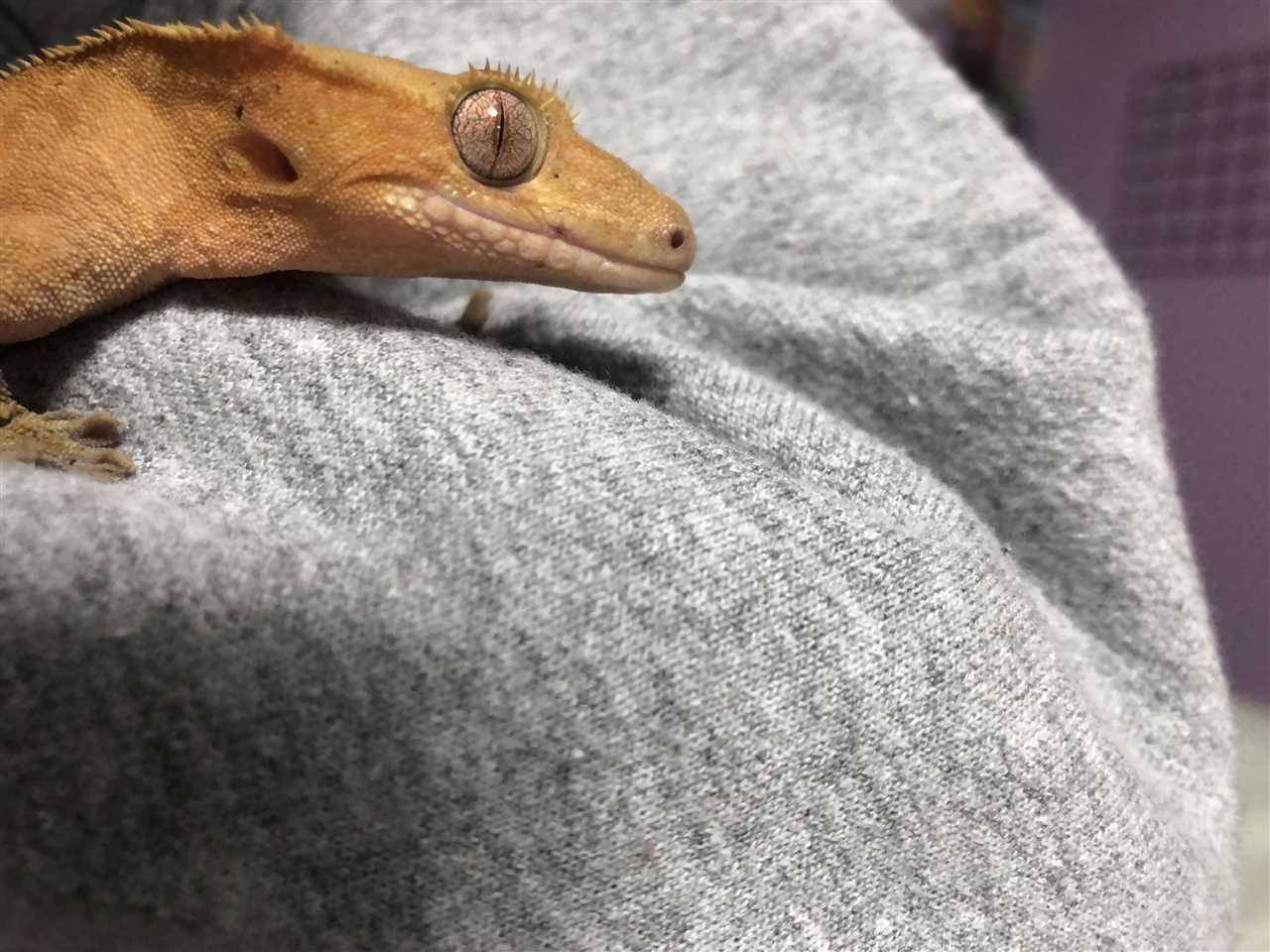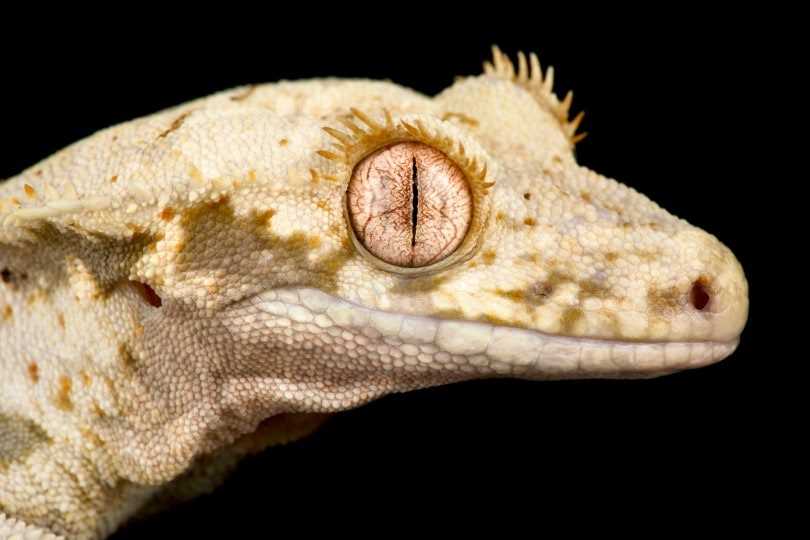
The causes of mouth rot in crested geckos can vary, but it is often associated with poor hygiene, a weakened immune system, or bacterial and fungal infections. Poor dental health, improper diet, and improper tank conditions can also contribute to the development of mouth rot. It is essential for crested gecko owners to maintain a clean and appropriate environment for their pets to reduce the risk of mouth rot.
The treatment of mouth rot in crested geckos typically involves a combination of veterinary care and proper husbandry. Your veterinarian will assess the severity of the infection and may prescribe antibiotics or antifungal medications. In some cases, oral or topical medications may be necessary. Additionally, it is crucial to improve the gecko’s living conditions by maintaining proper humidity levels, providing a balanced diet, and ensuring regular dental care.
By being proactive in providing excellent care and maintaining optimal living conditions, crested gecko owners can reduce the risk of mouth rot and other health issues. Regular monitoring and early intervention can make a significant difference in the treatment and recovery of crested geckos affected by mouth rot, ensuring their continued well-being and happy life as a pet.
The primary cause of crested gecko mouth rot is poor oral hygiene. When the gecko’s mouth is not properly cleaned, bacteria and fungi can multiply, leading to infection and inflammation. Other contributing factors include a weakened immune system, poor diet, stress, and improper husbandry conditions.
Diagnosing crested gecko mouth rot typically involves a physical examination of the mouth and a review of the gecko’s medical history. The veterinarian may also perform additional tests, such as swabs or cultures, to identify the specific bacteria or fungi causing the infection.
Treatment for crested gecko mouth rot usually involves a combination of oral hygiene measures and medication. The veterinarian may prescribe antibiotics or antifungal medications to control the infection. Regular cleaning of the gecko’s mouth with a mild antiseptic solution is also necessary to remove the buildup of bacteria and promote healing.
Preventing crested gecko mouth rot is essential for maintaining the oral health of your gecko. This includes providing a clean and properly maintained habitat, offering a balanced and nutritious diet, and regularly monitoring your gecko for any signs of illness or infection.
Regular veterinary check-ups play a crucial role in the prevention and early detection of crested gecko mouth rot. Your veterinarian can provide guidance on proper husbandry practices, assess your gecko’s oral health, and address any concerns or issues that may arise.
Causes of Crested Gecko Mouth Rot
Bacterial Infections
Mouth rot in crested geckos is often caused by bacterial infections. Bacteria, such as Aeromonas, Pseudomonas, and Fusarium, can enter the gecko’s mouth through various means, including contaminated food, water, or substrate. Poor hygiene and unclean living conditions can also contribute to the growth and spread of these bacteria.
Injuries or Trauma
Compromised Immune System
A weakened immune system makes crested geckos more susceptible to mouth rot. Various factors can compromise their immune system, including poor nutrition, stress, improper temperature and humidity levels, and other underlying health issues. When the immune system is compromised, the gecko’s ability to fight off bacteria and infections is reduced.
Unhealthy Diet

Another common cause of crested gecko mouth rot is an unhealthy diet. Geckos that are fed a diet lacking in essential nutrients or fed an imbalanced diet are more prone to developing oral infections. Proper nutrition is crucial for maintaining optimal health and preventing mouth rot in crested geckos.
Contaminated Environment
A contaminated environment can also contribute to the development of mouth rot in crested geckos. Insufficient cleaning of the gecko’s enclosure, substrate, and accessories can lead to the buildup of bacteria and other harmful microorganisms. These contaminants can then enter the gecko’s mouth and cause an infection.
- Ensure the gecko’s enclosure is cleaned regularly using reptile-safe cleaning products.
- Remove any uneaten food or plant matter promptly to prevent bacterial growth.
- Use clean and fresh water for drinking and misting to avoid introducing contaminants.
- Provide a clean and hygienic substrate that is easy to clean and prevents bacterial buildup.
By addressing these causes and implementing proper hygiene and care practices, crested gecko owners can reduce the risk of mouth rot and maintain their gecko’s oral health. Regular veterinary check-ups and a balanced diet are crucial in preventing and managing this condition.
Recognizing the Symptoms of Crested Gecko Mouth Rot
1. Foul Odor: One of the first signs of mouth rot in crested geckos is a foul odor coming from their mouth. If you notice an unpleasant smell, it could indicate an infection or decay in their oral cavity.
2. Discoloration: Crested geckos with mouth rot may have a discoloration in their gums, tongue, or teeth. The affected areas may appear red, swollen, or have a yellowish or brownish tint.
3. Excessive Salivation: Another symptom to look out for is excessive salivation. If your crested gecko is drooling more than usual or has wetness around their mouth, it could be a sign of mouth rot.
4. Difficulty Eating: Mouth rot can make it painful for crested geckos to eat, so they may exhibit a decreased appetite or have difficulty swallowing their food. They might also show a preference for softer foods over harder ones.
5. Lesions or Ulcers: Infected crested geckos may develop visible lesions or ulcers on their gums or tongue. These sores can be painful and may cause bleeding.
6. Behavior Changes: If your crested gecko seems lethargic, inactive, or shows a noticeable change in behavior, it could be a sign that something is wrong. Mouth rot can cause discomfort and pain, leading to changes in their usual behavior patterns.
If you observe any of these symptoms in your crested gecko, it is crucial to seek veterinary attention. A qualified reptile veterinarian will be able to diagnose the condition accurately and provide the necessary treatment to alleviate the mouth rot and prevent further complications.
Diagnosing Crested Gecko Mouth Rot
If any abnormalities are noticed during the examination, it is recommended to seek the assistance of a reptile veterinarian. They have the knowledge and experience to properly diagnose crest gecko mouth rot and provide appropriate treatment options.
The veterinarian may perform further tests, such as a bacterial culture, to determine the specific bacteria causing the infection. This can help guide the treatment plan and ensure the most effective antibiotics are administered.
Conclusion
Treating Crested Gecko Mouth Rot
1. Isolate the Infected Gecko
The first step in treating crested gecko mouth rot is to isolate the infected gecko from other reptiles. This will help prevent the spread of the infection to other animals.
2. Clean the Gecko’s Mouth
Gently clean the infected area of the gecko’s mouth using a diluted antiseptic solution recommended by a veterinarian. Be careful not to cause any further damage to the sensitive tissues.
3. Apply Topical Medication
Apply a topical medication, such as an antibiotic ointment, as directed by a veterinarian. This will help treat the infection and promote healing of the affected area.
4. Administer Oral Medication

In some cases, oral medication may be necessary to treat crested gecko mouth rot. Follow the veterinarian’s instructions carefully and ensure that the gecko receives the prescribed dosage.
5. Provide Supportive Care
6. Follow-up Veterinary Visits
Regular follow-up visits to the veterinarian are essential to monitor the progress of the treatment and make any necessary adjustments. The veterinarian may recommend additional tests or treatments based on the gecko’s response to the initial treatment.
Remember, it is always best to consult a veterinarian experienced in reptile care when dealing with crested gecko mouth rot. They will be able to provide a proper diagnosis and guide you through the appropriate treatment plan to ensure the best outcome for your crested gecko.
Preventing Crested Gecko Mouth Rot
- Keep the enclosure clean and sanitized: Regularly clean the enclosure, including the substrate, decorations, and water dish. This will help remove any potential sources of bacteria or fungi that can cause mouth rot.
- Provide a balanced diet: Ensure that your crested gecko is receiving a proper diet that is rich in vitamins and minerals. A well-balanced diet will help strengthen their immune system and reduce the risk of mouth rot.
- Avoid feeding live prey: Live prey can potentially harm the gecko’s mouth, leading to mouth rot. It is recommended to feed pre-killed or frozen prey to reduce the risk of injury.
- Monitor humidity levels: Crested geckos require certain humidity levels to thrive, but excessive humidity can contribute to the development of mouth rot. Ensure that the enclosure has proper ventilation and maintain appropriate humidity levels.
The Importance of Regular Veterinary Check-ups for Crested Gecko Mouth Rot
What is Crested Gecko Mouth Rot?
Crested gecko mouth rot is a bacterial or fungal infection that affects the mouth, gums, and surrounding tissues. It is commonly caused by poor hygiene, inadequate diet, or a weakened immune system. When left untreated, mouth rot can lead to pain, difficulty eating, weight loss, and even systemic infection.
Why Regular Veterinary Check-ups are Important
Regular veterinary check-ups play a vital role in preventing and managing crested gecko mouth rot. Here are a few reasons why regular check-ups are essential:
- Early Detection: A qualified veterinarian can identify the early signs of mouth rot during routine examinations. They can check for redness, swelling, or discharge in the oral cavity, which are indicative of an infection.
- Proper Diagnosis: Even if you suspect your crested gecko has mouth rot, a veterinarian can confirm the diagnosis through various tests. They may perform a physical examination, oral swabs, or blood tests to identify the specific bacteria or fungi causing the infection.
- Appropriate Treatment: Once mouth rot is diagnosed, a veterinarian can prescribe the appropriate treatment plan. This may include oral medications, antibiotics, antifungal agents, or topical treatments to alleviate the infection and promote healing.
- Preventative Measures: Regular check-ups allow veterinarians to provide guidance on proper hygiene, diet, and habitat maintenance for crested geckos. They can educate pet owners on how to prevent mouth rot by keeping the enclosure clean, providing a balanced diet, and ensuring the gecko’s overall health.
When to Schedule a Veterinary Check-up
If you notice any signs or symptoms of crested gecko mouth rot, it is crucial to schedule a veterinary check-up as soon as possible. Some common signs to look out for include:
- Redness or swelling in the mouth or gums
- Discharge or pus-like substance in the mouth
- Difficulty eating or loss of appetite
- Weight loss
- Bad breath
- Lethargy
Additionally, regular check-ups should be scheduled every 6-12 months for routine examinations and preventive care. This allows the veterinarian to monitor the overall health of your crested gecko, detect any early signs of mouth rot or other health issues, and provide necessary treatments or recommendations.
Tips for Maintaining Crested Gecko Oral Health

To ensure the oral health of your crested gecko and prevent mouth rot, there are several important tips to keep in mind:
1. Provide a proper diet:
Feeding your gecko a balanced and nutritious diet is crucial for maintaining oral health. Include a variety of insects, fruits, and commercially-made gecko food in their diet to ensure they receive all the necessary vitamins and minerals.
2. Regularly clean the enclosure:
To prevent the growth of bacteria and fungi in the gecko’s environment, it is essential to regularly clean the enclosure. Remove any uneaten food, feces, and shed skin promptly to maintain a clean and hygienic habitat.
3. Maintain optimal humidity levels:
Crested geckos require a specific level of humidity to keep their mouth and respiratory system healthy. Use a hygrometer to monitor the humidity levels in the enclosure, and ensure it stays between 50-70%. Proper humidity will help prevent dehydration and bacterial growth.
4. Provide proper heating:
Keeping the enclosure at the right temperature is crucial for your gecko’s overall health, including their oral health. Ensure the enclosure has a temperature gradient, with a warm side and a cooler side, so that the gecko can regulate its body temperature properly.
5. Avoid rough handling:
Handling your crested gecko with care is important to prevent any injuries or stress that can lead to a weakened immune system. Avoid excessive handling or rough physical contact, as it can increase the risk of mouth rot and other health issues.
6. Regularly inspect the gecko’s mouth:
Performing regular oral inspections of your crested gecko is essential for early detection of any signs of mouth rot. Gently open their mouth using a cotton swab or your fingers, and look for any redness, swelling, or discharge. If you notice any abnormalities, consult a veterinarian immediately.
7. Provide proper hydration:
Proper hydration is essential for overall health, including the oral health of your crested gecko. Ensure a clean water source is always available, and mist the enclosure regularly to provide humidity and hydration.
8. Avoid overcrowding:
Keeping too many geckos together in one enclosure can increase the risk of stress, which can weaken their immune system and make them more susceptible to mouth rot. Provide adequate space for each gecko and separate any aggressive or sick individuals.
By following these tips, you can proactively maintain the oral health of your crested gecko and minimize the risk of mouth rot. Remember, if you notice any signs or symptoms of mouth rot, it is essential to seek veterinary care promptly to ensure proper treatment and recovery.

I’m Lena Adams—a product of an unconventional upbringing in the African wilderness. My father, a daring explorer of African wildlife, sparked my fascination with reptiles, a passion that intertwined with the tragic loss of my mother during an expedition, leaving an indelible mark on my life. Driven to understand the creatures that captivated my parents, I embarked on my journey, sharing insights about reptiles, frogs, and lizards on my website. Through my explorations and conservation efforts, I honour my family’s legacy while seeking connections—to the creatures, nature, and the mother whose presence I yearn to understand.
